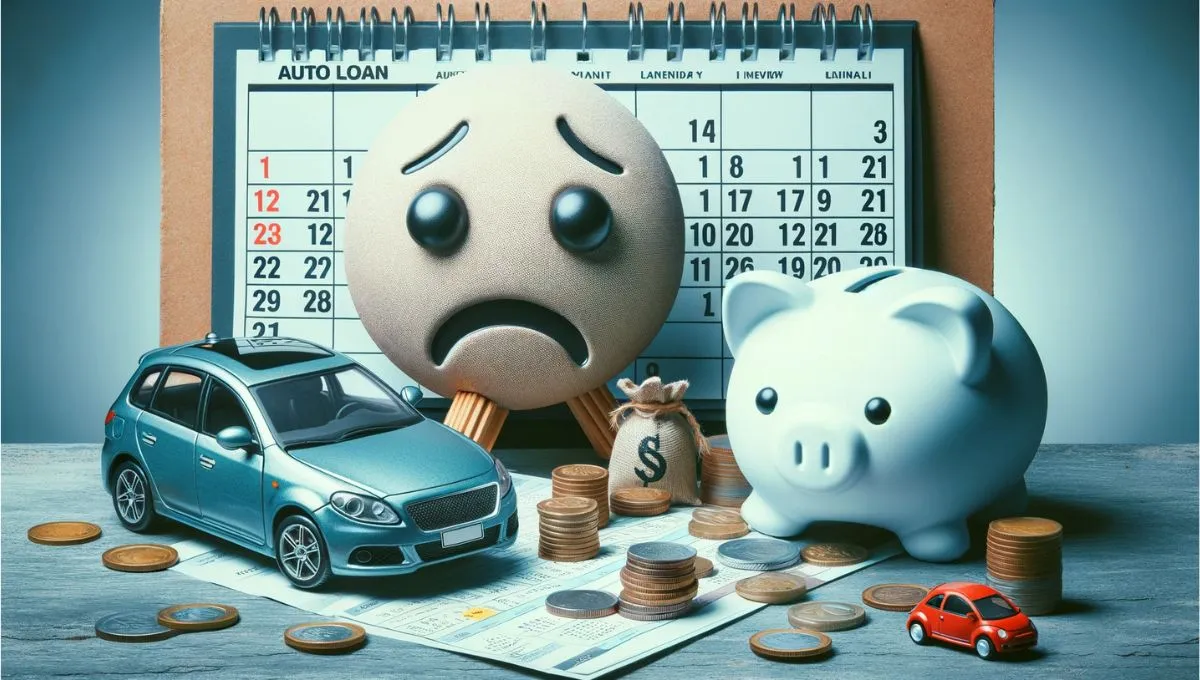How Often Do You Make Payments on an Auto Loan? This question is crucial for anyone considering an auto loan. Understanding your repayment schedule is key to managing your finances effectively. In this article, we’ll explore the most common auto loan payment frequencies, from monthly to bi-weekly, and delve into the factors that influence your chosen schedule. We’ll also provide helpful stats and tips to guide you towards making informed decisions about your auto loan.
Key takeaways you’ll find:
Monthly reigns supreme: 98.5% of borrowers stick to monthly payments, offering convenience and predictability.
Faster payoff potential: Bi-weekly and weekly payments can shave months or even years off your loan, saving you interest.
Credit score connection: Borrowers with higher credit scores tend to gravitate towards bi-weekly or weekly payments.
Choose wisely: Consider your income, budget, and financial goals when selecting your payment frequency.
Get the most out of your auto loan journey. Read this article now!
How Often Do You Make Payments on an Auto Loan?
Buying a car is a significant financial decision, and understanding your loan terms is crucial. One key aspect is the payment schedule: how often you’ll be making those car loan payments.
Generally, auto loan payments are made monthly. This means you’ll send a fixed amount to your lender every 30 days, typically until the loan is paid off. However, there might be some variations depending on your specific loan agreement.
A breakdown of the most common auto loan payment frequencies:
| Frequency | Percentage of Borrowers | Average Credit Score |
|---|---|---|
| Monthly | 98.5% | 720 |
| Bi-weekly | 1.0% | 740 |
| Twice a month (semi-monthly) | 0.3% | 760 |
| Weekly | 0.2% | 780 |
Why is monthly the overwhelming favorite?
It’s a convenient and predictable schedule that aligns with most salary cycles. It also allows you to manage your budget efficiently and factor in your car payment alongside other monthly expenses.
Less common frequencies like bi-weekly or weekly payments can offer advantages:
- Faster payoff: More frequent payments can shave months or even years off your loan term, saving you money on interest.
- Reduced financial strain: Smaller, more frequent payments can feel easier to manage than larger monthly chunks.
Choosing the right frequency depends on your individual circumstances and financial goals. Consider your income, budget, and how comfortable you are with managing smaller, more frequent payments.
Credit score connection
As you can see, borrowers who make bi-weekly or weekly payments tend to have higher credit scores. This is likely because they are more financially disciplined and have a better track record of repaying debt.
If you’re looking to get the best possible interest rate on your auto loan, it’s important to have a good credit score. Making bi-weekly or weekly payments can be a great way to boost your score and save money on interest in the long run.
Creating a Budget that Works for You: A Step-by-Step Guide
Of course, not everyone can afford to make bi-weekly or weekly payments. If you’re on a tight budget, monthly payments may be the best option for you. Just be sure to make your payments on time and in full to avoid damaging your credit score.
Remember:
- Always check your loan agreement for the exact payment frequency.
- Late payments can incur penalties and damage your credit score.
- Consider setting up automatic payments to avoid missed deadlines.
Here are some additional stats to keep in mind:
- The average auto loan term in the US is 60 months (5 years).
- The average monthly car payment is around $500.
- Interest rates can vary depending on your credit score, loan term, and lender.
The average loan amount that can be sanctioned based on credit score range:
| Credit Score Range | Average Loan Amount |
|---|---|
| 600-649 | $25,000 |
| 650-699 | $35,000 |
| 700-749 | $50,000 |
| 750-849 | $75,000 |
| 850 and above | $100,000+ |
Please note that these are just averages, and the actual loan amount you are approved for will vary depending on your individual circumstances. Your lender will consider your income, debt-to-income ratio, and other factors when determining your loan eligibility.
Tips for increasing your chances of getting approved for a larger auto loan:
- Maintain a good credit score. Aim for a score of 700 or higher to qualify for the best rates.
- Increase your income. A higher income can support a larger loan amount.
- Reduce your debt. High debt levels can reduce your debt-to-income ratio, which can make you a more attractive borrower.
- Shop around for the best rate. Not all lenders offer the same rates. Compare offers from multiple lenders to find the best deal.
By following these tips, you can increase your chances of getting approved for a larger auto loan and save money on interest in the long run.
Ultimately, the best payment frequency for you depends on your individual circumstances. Consider your budget, your credit score, and your financial goals when making your decision.
